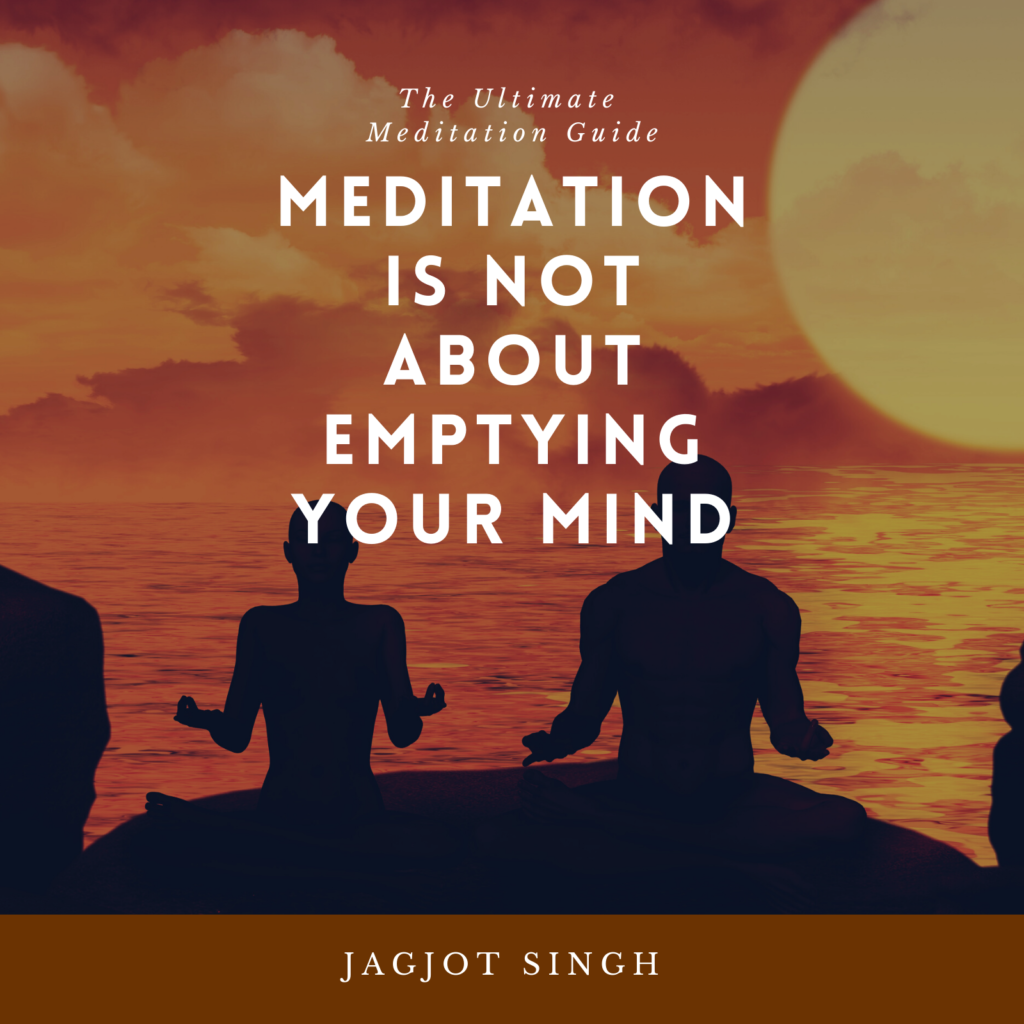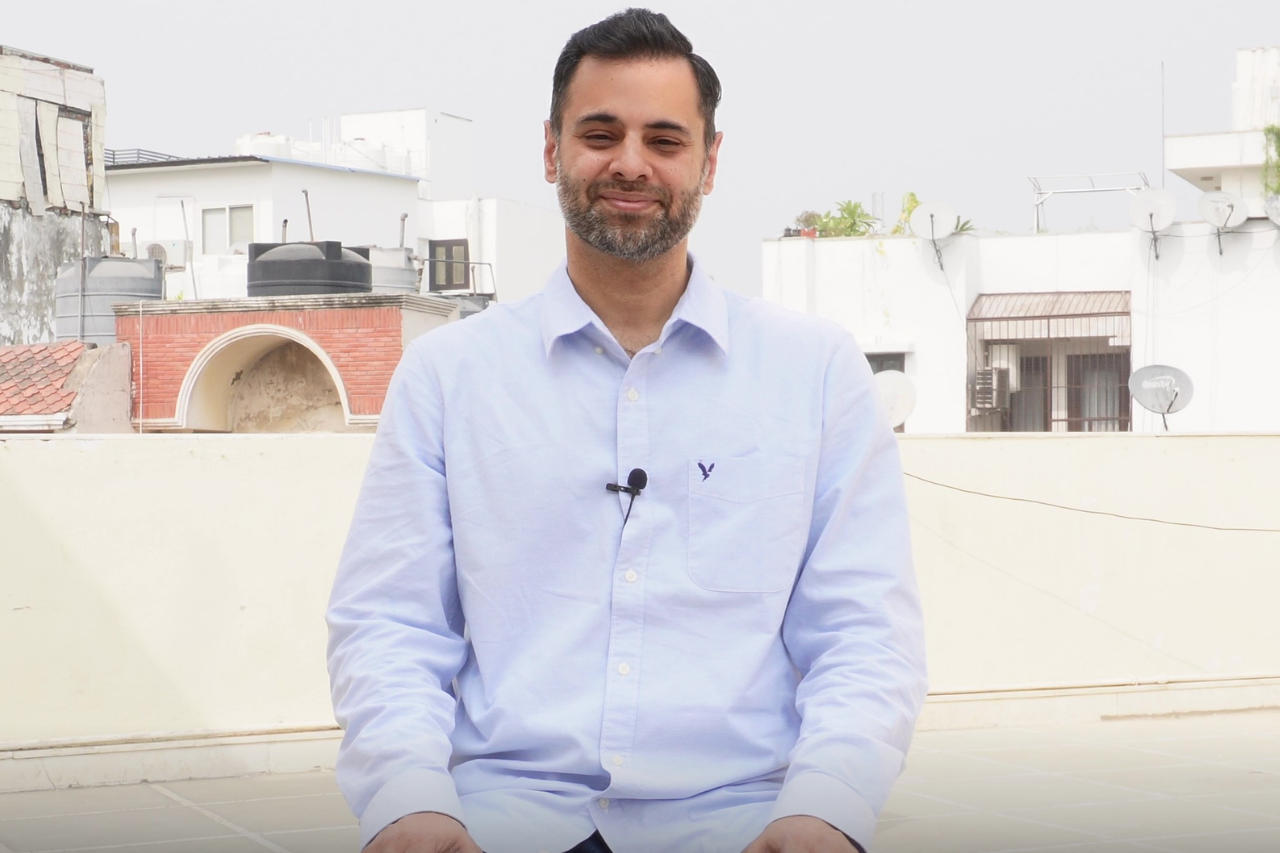A couple of days back, I spoke to a lady who’s been following the blog and mindfulness teachings for about a year. It was an interesting conversation because most of the time, she only spoke.
Every time she asked me a question, she barely had the patience to listen to the answer. So I played along and kept listening. Perhaps she was there only to express herself and was not seeking answers.
And that’s okay! Sometimes, we feel the need to express ourselves, and all we want is a compassionate ear. So I fulfilled that role. Finally, she thanked me, and the best part was that she left the session with a smile on her face.
However, such relief is usually temporary, and it is unreasonable to expect people to be compassionate all the time. Now, I’m not a psychologist, but what I gathered from a short time with her was that she was avoiding some deep-seated issues.
For example, she spoke about being in a relationship with an emotionally unavailable man who did not acknowledge her needs. It led to frustration, and she would often go into an uncontrollable rage that caused the man to withdraw further.
She said, “I don’t want to be like this, but I’m only human.” And I agree with her; sometimes, the pain at the moment is so crushing that a reaction happens as an involuntary mechanism. However, if this pattern repeats frequently, something needs addressing.
Now I don’t do psychotherapy, mainly because I’m not interested, and also, I’m not qualified to do that. Neither do I like to dig into people’s past. Yes, if they willingly want to share something, I listen, but I don’t pry.
So the crux of the matter was that her mind was driving her crazy with obsessive thoughts. She had been visiting a therapist for two years, but the relief was only temporary.
In the heat of the moment, she loses her cool and reacts in a manner that she later regrets. Now, doesn’t that happen to almost all of us? I know it used to happen to me.
Before leaving the conversation, she asked me, “Mindfulness is not my cup of tea. Can you suggest something that works in practical life?” And my honest reply was, “I don’t know anything that you can use as a practice to help your condition.”
I know she didn’t like that answer. I could see it on her face. She felt disappointed that I was not giving her a solution. But you see, in such situations, giving a painkiller-like solution is like temporarily treating the symptoms and ignoring the root cause.
You see, we have reduced mindfulness to a fad, a practice that can quickly relieve us of our symptoms. From what I see, a whole industry has been built around mindfulness which gives techniques and methods to calm the mind.
The problem is that the same afflicting thoughts start appearing in your mind again when you get up from your meditation session. Therefore, the impression is that we are doing something wrong, that mindfulness doesn’t work for everybody, or that it’s impractical. Not living up to the hype.
And, it is a fact that a huge hype has been created around meditation and mindfulness, and these are promoted and heavily advertised with monthly subscription programs that guarantee immediate results.
Almost every mindfulness blog out there is flooded with guided meditations. Many of them claim magical results without putting much consideration into the content of those guided meditations. Words are powerful, and the choice of words and their timing play a significant role.
For example, when I’m helping someone explore their heart energy center, I’m mindful of using the appropriate words. Just randomly using sentences like “awaken your heart” is not going to help. There has to be a context and a solid understanding of what’s happening.
A common question I often get asked is, “I meditate every day for so many minutes, but during a conflict situation, I react, losing all control of my logical mind. What should I do?”
Let’s examine this and see where we are going wrong. First of all, it is human to react sometimes. It should not become a compulsive habit, but a reaction can happen even to the wisest.
The objective here is to become a calm person and not a perfect one. Perfection of this kind is impossible in human conditioning, and if you’ve seen a perfect person, you have likely projected an idealized image onto them.
Even the sages get angry when provoked, but the anger does not give way to explosive rage or abuse. The anger comes out of compassion, and the sage will be mindful that he or she is angry.
I’m no sage, but I’ve been meditating for many years now, and I do get angry sometimes, but it does not lead to guilt because I’m mindful of my anger.
Now that we are free of the egoic perception of reactivity and its obsession with perfection, we can explore how to be mindful. When emotional reactivity becomes a habit, it creates problems and inconveniences.
It breaks relationships, friendships, and other friendly associations. A calm mind is not reactive but responsive to challenging situations. But to develop such a mind, one has to cultivate awareness in daily living.
Our actions, the way we interact with others, the thoughts that arise in our minds in different situations, and most importantly, how we behave with people who in some way are dependent on us.
I repeatedly say that mindfulness is not a practice but a way of living. If you reduce mindfulness to practice, you simply deceive your mind and satisfy your ego claiming that you’ve done the work.
When you spend the entire day in a high-stress environment, without being mindful, sitting and closing your eyes for 20 minutes will not give you a lasting calmness.
It will make you calm for the time you’re meditating, but the obsessive thinking mind will resume shortly, and all the stress and anxiety will come back.
Most people try mindfulness for a short duration and jump to conclusions. On top of that, mainstream media groups and social media offer varying opinions by the so-called experts.
I have been learning about mindfulness for seven years now, and I can say that I’ve barely gone below the surface of what mindfulness is. At the same time, some people are offering weekend retreats after a few months of learning about mindfulness.
Mindfulness is not going to work if you’re deeply unaware of your unconscious habits. If you’re addicted to your smartphone, and seek extreme pleasure in food, sex, substances, video games, tv, etc., what do you think will happen when you sit for meditation?
If you’re in the habit of seeking constant stimulation, how will your mind become restful? The dopamine-addicted brain will not allow for that.
When I started mindfulness, I had to do a lot of self-observation and discipline myself to follow conscious habits. I withdrew from stressful activities and spent a significant time of the day in relaxation.
When people tell me that they don’t have the luxury to live a relaxed life, I ask what they’re trying to accomplish. And there’s never a clear answer to that question because most people don’t know. They usually say they’re busy.
Are we really that busy, or have we just trained our minds to believe that? Therefore, cultivating awareness by dropping the resistance will make you mindful. Awareness brings restfulness, which is our natural state.
Remember, don’t follow what I’m saying as a strict guideline, and force yourself into awareness. Instead, when the awareness comes up (and it comes up many times), rest in it, suspending all activity. Don’t force anything; go with the flow.
When you force yourself to be aware, the mind rebels and it will do everything in its power to divert your attention. That’s why when you sit in meditation; random thoughts begin to crop up.
The mind does not like to be forced. So in the words of the great meditation teacher, Mingyur Rinpoche, give the monkey mind only a part-time job and don’t overwhelm it with a full-time job.
While the physical benefits of mindfulness and meditation appear fast, the permanent freedom from the bondage of the mind comes with time when the ego has subsided sufficiently.
It requires the cultivation of watchfulness of what appears in the mind without offering any judgment or resistance. So if you feel upset, angry, envious, or any other emotion, accept it, let it arise, play, and disappear.
When you repeatedly do this, you create a space in your conscious mind to let go of the afflicting emotions. Slowly, even the hidden aspects within the subconscious mind rise to the conscious layer and dissolve.
They come from the void, and they go back into the void. In this process, you are likely to fail many times, and it will be challenging, but don’t get discouraged.
I don’t have anything against people and organizations that teach mindfulness as a practice and claim superhuman results, but I don’t claim super-fast results.
In my experience, there’s nothing you can “do” to become calm other than allow awareness to witness what’s happening in the mind.
We live in the age of instant gratification, but that’s not possible with mindfulness. I’m giving you a realistic picture here of what to expect based on personal experience.
I’m not telling you either to do anything or to stop doing what you do. If you meditate daily or perform any other mindfulness practice, that’s fine. Keep doing what works for you.
According to the ancient yogis, the idea of meditation is not to become a good meditator but to allow the meditator to disappear. When the meditator disappears, all the problems dissolve automatically. The problems are a part of the ego which imagines itself to be the separate self.
Therefore, cultivating awareness in daily living is the key to true happiness. When you’re mindful, you realize that you have a choice. You know that you’re the master of your mind and not its slave.



